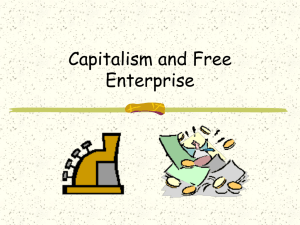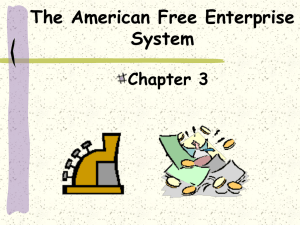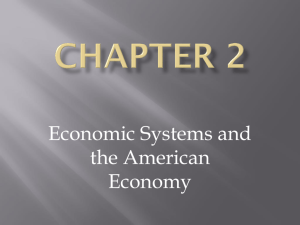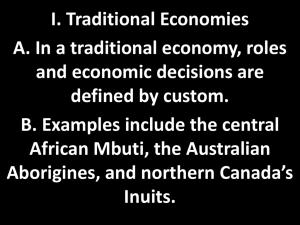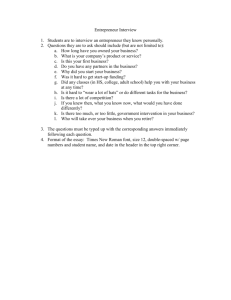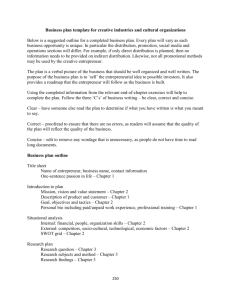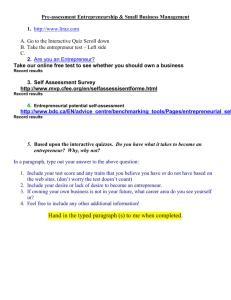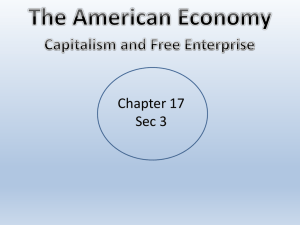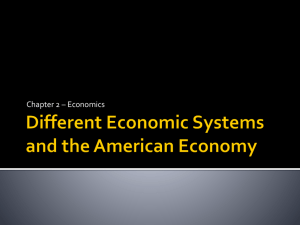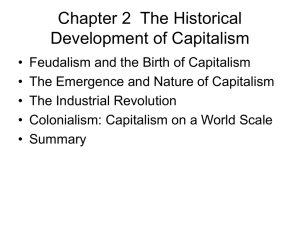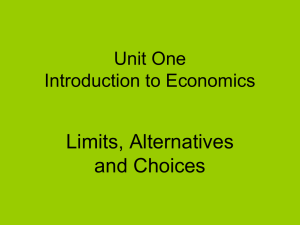Capitalism and Free Enterprise
advertisement
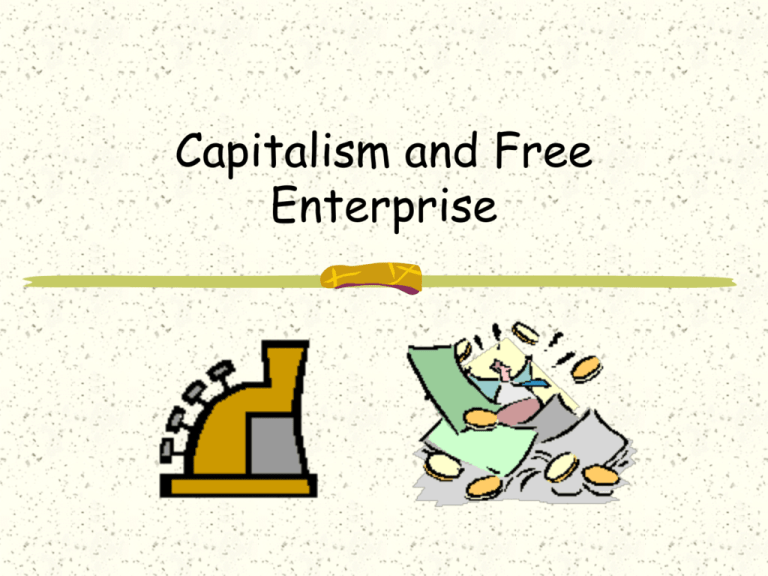
Capitalism and Free Enterprise Capitalism A market economy is based on capitalism, a system in which private citizens own the factors of production. Capitalism thrives on competition, the struggle among sellers to attract consumers while lowering costs. Buyers also compete to find the best products at the lowest prices. Free Enterprise Free Enterprise is another term used to describe the American economy. In a free enterprise economy, competition is allowed to flourish with a minimum of government interference. Four Characteristics of Free Enterprise 1. Economic Freedom People have the freedom to choose their occupation and their employer. People can choose to have their own business or to work for someone else. Businesses are free to hire the best workers, and they have the freedom to produce the goods and services they feel will be the most profitable. Four Characteristics of Free Enterprise 2. Voluntary Exchange The act of buyers and sellers freely and willingly engaging in market transactions. Both the buyer and seller are better after the transaction than before. Four Characteristics of Free Enterprise 3. Private Property People have the right and privilege to control their possessions as they wish. They have the right to use or abuse their property as long as they do not interfere with the rights of others. This gives people the incentive to work, save, and invest. Four Characteristics of Free Enterprise 4. Profit Motive The driving force that encourages people and businesses to improve their material well-being. People are free to risk their wealth in a business venture. If things go poorly, they lose part or all of the investment. If things go well, they will earn rewards. The Role of the Entrepreneur The entrepreneur is one of the most important people in the economy. The entrepreneur organizes land, labor, and capital in order to seek the reward called profit. The entrepreneur’s search for profits can lead to a chain of events that involves new products, greater competition, more production, higher quality, and lower prices for consumers. The Role of the Consumer Consumers have the power in the economy because they determine which products are likely produced. If consumers like a product, it will sell, and the producer will be rewarded for his or her efforts. If consumers reject the product, the firm may go out of business. This is known as consumer sovereignty. The Role of Government Government has an economic role to play that reflects the desires, goals, and aspirations of its citizens. The role of government is normally justified whenever its benefits outweigh its costs. The Role of Government 1. Protector Government enforces laws such as those against false and misleading advertising, impure food and drugs, environmental hazards, and unsafe automobiles. It also enforces laws against abuses of individual freedom. The Role of Government 2. Provider and Consumer Government provides goods and services for citizens. For example: national defense, education, parks, and libraries. In the process government consumes factors of production just like any business. The Role of Government 3. Regulator The government is charged with preserving competition in the market place. It tries to ensure everyone follows the “rules of the game” to ensure an efficient and fair economy. The Role of Government 4. Promoter of National Goals Government reflects the will of the majority of its people. Government programs such as Social Security, child labor laws, and minimum wage reveal how Americans have modified their free enterprise economy. The Role of Government Because of these modifications, the United States is said to have a mixed economy. This is one in which people carry on their economic affairs freely but are subject to some government intervention and regulation.
